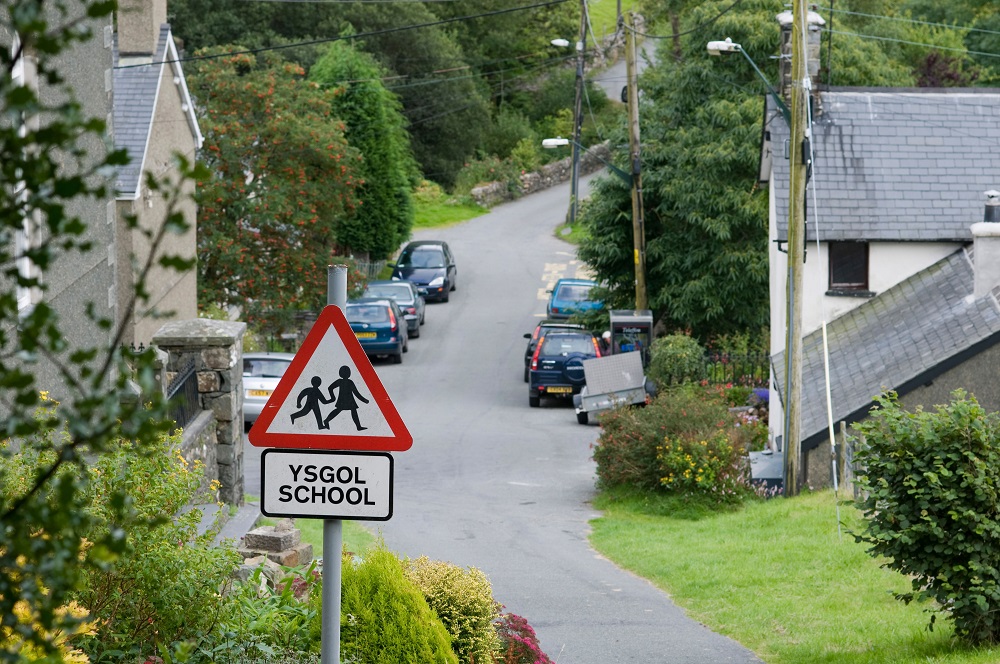Senedd roundup: How schools will work during the pandemic closure period

Owen Donovan, Senedd Home
Following the announcement last week that all schools in Wales would remain closed for the time being, the Welsh Government published an FAQ for how schools would work during the downtime and other important issues such as external exams.
Role of schools during the downtime
Schools should remain open as emergency childcare facilities for the children of staff who are essential to the pandemic efforts as well as children who otherwise require additional support (“vulnerable children”) – though if children can stay home, they should do so.
Those children deemed as being “vulnerable” include looked-after children, children on child protection registers, young carers, disabled children and those with special needs.
Each local authority is deciding for themselves how to carry this out, so it’s best to check with your council for how arrangements will work.
Headteachers and staff will be expected to go to school and work as usual unless they have to self-isolate. Teacher training placements are postponed and training providers can use their discretion to decide whether a trainee teacher is eligible for Qualified Teacher Status.
Estyn has suspended school inspections and requirements for test and assessment reports have been relaxed or scrapped.
Most of this applies to state schools; it’s up to independent schools whether they close or remain open.
Free school meals
Free school meals will be made available to children who are eligible to receive them and £7 million has been made available from the Welsh Government to ensure this happens – arrangements will be made by each council. Supermarket/shop vouchers are being considered across the UK.
When will schools fully re-open?
The Easter holiday is set to end on April 20th 2020, but there are no plans yet for schools to reopen after that period. The situation will be kept under review.
How will students continue to learn during the closure period?
Learning is set to move online with the aim for disruption to lessons to have been kept to a minimum during the downtime.
Schools will be expected to ensure families without access to technology for online learning are provided with it (or an alternative).
What about special schools?
Where possible, services will move online (i.e. online therapy) but all local authorities will be expected to consider alternative arrangements for students with additional learning needs. Residential special schools and boarding schools should remain open wherever possible.
Summer exams (GCSEs, AS-Levels, A-Levels)
Most of 2020’s summer exams have been cancelled.
Students will receive grades at GCSE and A-Level based on their predicted grades (the latter of which is at least partially based on their performance at AS-Level) and teacher assessments.
Consideration is still being given as to how to award grades for qualifications other than GCSE and A-Level, though the WJEC says Year 10 and AS-Level (Year 12) students may sit unit exams at a later date.
What about national literacy and numeracy tests?
The requirement to sit and report on these tests will be relaxed, though as the tests are taken online schools still have the option of using them during the closure period if they want to. Traditional end-of-year tests at Key Stage 2 and 3 won’t happen.

What’s in the UK Coronavirus Bill?
Within the last week, the UK Government introduced an emergency law to deal with the coronavirus/Covid-19 pandemic – Bill here (pdf), explanatory memorandum here (pdf).
The Senedd is due to discuss a Legislative Consent Motion (LCM) on this tomorrow as it legislates in some devolved areas.
The Bill itself won’t get as much attention as recent emergency announcements to shore up the economy – but in the interests of public information it has to be properly summarised because it could have a big impact.
As it’s an emergency law, it’ll be fast-tracked through the UK Parliament and is expected to come into force by the end of March 2020 and last for two years – which is roughly the window in which a vaccine is expected to be developed – albeit with provision for it to be extended or shortened as needs be. The Welsh Government have already introduced emergency regulations on detention and isolation of people suspected of being infected.
NHS & Social Care Administration
- Regulates the emergency registration of nurses, doctors, pharmacists and social workers and allows a system of payments to be set up for emergency volunteers for expenses and loss of earnings.
- Rules regarding NHS pensions in EnglandandWales will be suspended to allow retired healthcare workers to return to work temporarily.
- The Bill includes powers for an indemnity scheme for health care workers and other undertaking activities relating to the pandemic.
- The Welsh Government will be able to introduce flexible vetting procedures (i.e. not requiring a full DBS check) for health care providers.
- Only one doctor’s authorisation will be required to detain someone under the Mental Health Act (aka. sectioned).
Excess Deaths
- Any doctor, not just those who’ve had contact with a recently deceased person, will be able to sign a death certificate without it being referred to a coroner.
- Family members of the deceased won’t have to physically attend a registry office to register a death (funeral directors will be able to on their behalf, for example). Confirmatory medical certificates won’t be required to allow cremations to take place.
- Coroners inquests with a jury won’t need to be held if the suspected cause of death was coronavirus/Covid-19.
- In circumstances where local authorities can’t cope with an excess number of deaths, cremation may become mandatory (and crematoriums may have their operating hours extended), while traditional/individual funerals may not take place – though this is only likely to happen in a “worst-case scenario“.
Economy, Tax & Welfare
- The Welsh Government will be able to close schools and childcare facilities as well as cancel/close events, gatherings and any other premises.
- Employers will be able to recover the costs of Statutory Sick Pay (SSP) from HMRC to encourage sick employees to take time off work. “Waiting days” (usually 3 days) to receive SSP can also be waived.
- National insurance contribution rates can be changed without an accompanying report.
- The food industry can be compelled to supply governments with information relating to supplies (at the moment it’s done voluntarily).
- Port operations can be suspended if there are insufficient Border Force officers.
- There’s a broad provision allowing public authorities (including the devolved administrations) to make payments/provide financial assistance relating to the Coronavirus Bill.
Policing & Criminal Justice
- The Bill includes powers to appoint temporary Judicial Commissioners (to issue warrants under the Investigatory Powers Act).
- Urgent warrants can be valid for up to 12 days (an increase from 3 days).
- The use of video links in the courts will be expanded, with rules on public proceedings changed to reflect this.
Postponement of Elections
- All elections due to take place in 2020 will be postponed to 6th May 2021 (in Wales’ case, the Police & Crime Commissioner elections).
- Recall petitions for MPs can’t take place at least until 6th May 2021.
- The Llywydd/Presiding Officer of the Senedd can postpone by-elections for Senedd constituency vacancies until the next Senedd election on 6th May 2021.
- The Welsh Government can delay local authority by-elections can until any date before 6th May 2021.
Conclusions: Not as draconian as it could’ve been, but read the small print
The last time we saw legislation like this (as far as I know) was at the start of the Second World War – which underlines how bad the situation is expected to get. It’s a step down from the kind of measures that would’ve been put in place as part of a “transition to war period” during the Cold War. That said, while there’s a two year time limit on the law, it effectively means that things like public protests and rallies (probably including strikes) are banned for the next two years “on public health grounds” unless the UK Government and Parliament (in some circumstances the Welsh Government) decides otherwise.
The longer people ignore advice to stay home and minimise contact with other people, the longer this will last; within 2-3 weeks we’ll be talking about 50+ deaths a day in Wales. The message isn’t getting through and I’m surprised that TV and radio adverts haven’t been replaced with public information films. That failure to communicate properly is certainly going to be one of the major points of inquiry once this is over.
One area where measures could be strengthened (perhaps the Senedd can look at it if MPs don’t) is dealing with anti-social business practices for the next two years.
That could include price gouging, scams, ignoring advice and orders to close, encouraging/forcing people to work when ill, laying people off (or threatening to do so) for refusing to work when ill/self-isolating, encouraging people to breach advice on social distancing and encouraging unnecessary travel within and outside the UK. Price controls and limits on sale of certain items wouldn’t be a bad idea either until the run on certain goods stops.
The concern now is that panic buying is going to shift from selfish individuals and households to the “I’m here to help”/community support groups as they try to bulk-buy for other people who are self-isolating – so there may have to be some sort of official accreditation system for community volunteers or stores of essentials set aside specifically for them.
While measures to ban evictions were recently announced, the Renting Homes (Amendment) Bill may also need to be fast-tracked in the Senedd to provide extra protection from eviction.

A Transport for Wales train. Picture by Jeremy Segrott (CC BY 2.0)
Coronavirus: Train Companies To Run Reduced Services
Train operators serving Wales have announced emergency alterations to their weekday timetables as of today (23rd March 2020) due to a drop in passenger numbers as a result of the coronavirus pandemic.
It’s best to check ahead if you’re planning to use public transport (including buses).
The advice is that public transport will continue to run in some form. Although transport companies are taking measures to protect staff and passengers (extra cleaning, hand sanitisers etc.), you should avoid using public transport if you’re ill.
Refunds will be available for advance tickets.
Transport for Wales
- Sunday operating hours will be applied across the entire Wales & Borders network, with some additional services during morning and evening rush hour – more details available here.
- NHS staff can use Transport for Wales services for free (with a valid NHS ID card) until April 30th 2020.
Great Western Railway (South Wales Mainline)
- Swansea to London Paddington services will be reduced to hourly services in either direction at all times during the day.
- Cardiff Central to Portsmouth Harbour and Cardiff Central to Taunton will run as a service every two hours.
Avanti West Coast (North Wales Mainline)
- Only one train per day will run between Holyhead and London Euston in either direction.
-
- Hourly service between Cardiff Central and Nottingham continues.
Support our Nation today
For the price of a cup of coffee a month you can help us create an independent, not-for-profit, national news service for the people of Wales, by the people of Wales.






Let’s give the kids a decent meal every day. ALL the kids…………… and make it yummy!
Pasta/ chicken, Nordic meat balls, Shepherds pie, Pea soup(with chopped bacon) , Lamb stew, Fish ‘n chips.
Diolch Owen!!